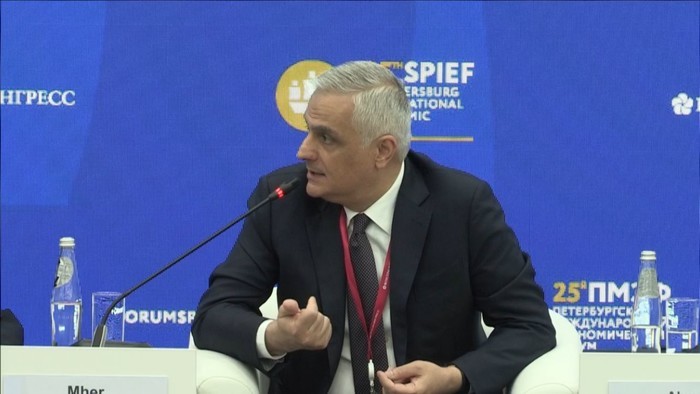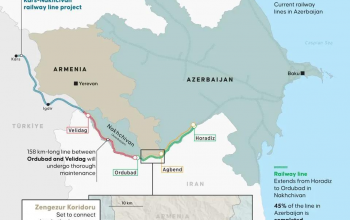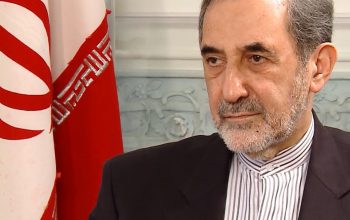Russia’s Deputy Prime Minister Alexei Overchuk warned on Friday that Russian companies see no future in Armenia as the country pursues eventual European Union membership, resulting in a sharp decline in trade between the two nations.
Speaking at an economic forum panel in Saint Petersburg alongside his Armenian counterpart Mher Grigorian, Overchuk emphasized the economic risks Armenia faces due to its geopolitical shift toward Europe.
“Given the current dynamics between Russia and the EU, Russian businesses understand they have no prospects in Armenia,” Overchuk said. “This is a fact that explains the ongoing contraction in trade.”
Russian-Armenian commerce, which had surged following the outbreak of the war in Ukraine, is expected to shrink by nearly half this year, falling below $7 billion, Overchuk added.
Last year, Russia accounted for over 41 percent of Armenia’s foreign trade, compared to just 7.7 percent for the EU.
Earlier this year, the Armenian parliament passed legislation marking the start of the country’s accession process to the EU. Moscow has cautioned that this could jeopardize Armenia’s tariff-free access to the Russian market and lead to higher prices for Russian natural gas and food imports.
Armenian Prime Minister Nikol Pashinyan and other officials have insisted the law does not constitute a formal EU membership bid and stressed that Armenia currently has no plans to leave the Russia-led Eurasian Economic Union (EEU).
“But you have passed the law, and we take it seriously,” Overchuk responded. He noted that Armenia is already implementing certain EU standards on food imports that conflict with EEU regulations.
“We understand these steps aim to weaken our existing relations, and this is a very serious matter,” he warned, alluding to possible retaliatory measures by Moscow.
Grigorian disagreed, arguing that ordinary Russians continue to feel welcome in Armenia and that Overchuk was “somewhat dramatizing” the situation. “I would say Russian business also feels very comfortable in Armenia,” the Armenian vice-premier added.
Grigorian did not address Armenia’s EU ambitions, which have yet to be formally endorsed by any EU member state.
Last week, Pashinyan acknowledged that Armenia will eventually have to choose between closer integration with the EU or continued membership in the EEU but did not specify a timeline.
The Armenian government first raised the possibility of an EU membership bid in early 2024 amid increasing tensions with Moscow. Opposition parties have criticized this shift as reckless and warned of its potentially severe economic consequences.




